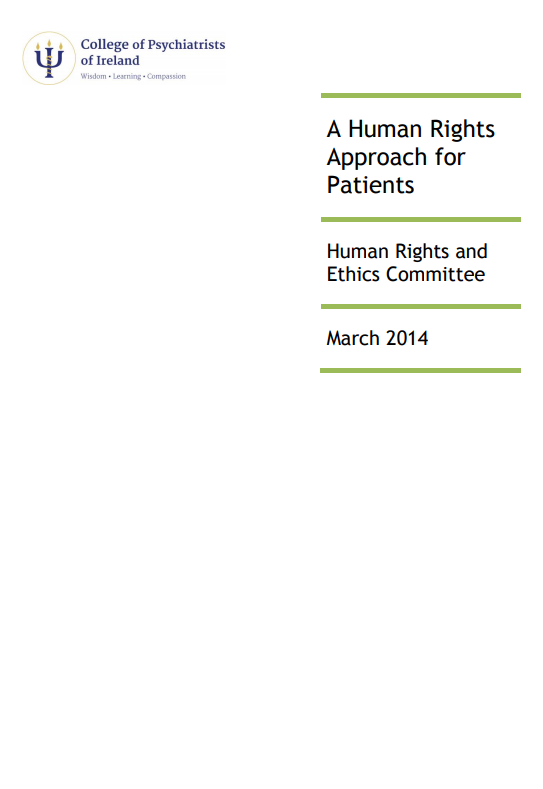Human rights and mental health interact in three different ways; (1) poor mental health care services may affect mental health e.g. The lack of availability or under-resourcing of necessary services will compromise the mental health of those requiring treatment, (2) human rights violations may affect mental health and (3) the positive promotion of mental health reinforces human rights. The College holds the view that those who suffer from a mental disorder are entitled to enjoy all of their human rights including the right to evidence based, high quality treatment and rehabilitation. Too often prejudice and stigma hamper the development of mental health policies and are reflected in the provision and delivery of poor services, low status of care providers and a lack of respect for the human rights of those with mental health problems.
It must also be recognised that psychiatry has been used as a weapon in totalitarian regimes to violate human rights, particularly throughout the 20th century.

